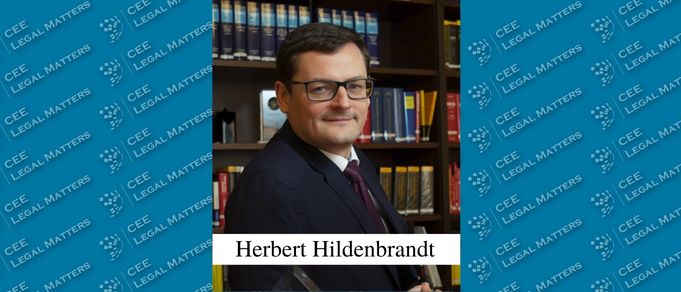A strong flow of legislative updates, a number of active business sectors, and the upcoming presidential election in the fall – this is what’s in the cards for Austria, according to BMA Law & Tax Attorney at Law Herbert Hildenbrandt.
“We have a presidential election coming up in October,” Hildenbrandt begins. “It is expected that the incumbent president will retain his position, given the fact that he’s managed a turbulent period in the past years, including many inaugurations.” This projected period of stability suits Austria well, as Hildenbrandt points out that the country implemented a number of EU directives into national law, that came into force recently. “One of these is the consumer protection act, changing the rules for product warranties in favor of the consumer,” he explains.
Hildenbrandt also reports that the tax system is set to be updated. “The corporate income tax is coming down from its current rate of 25% – to 24% in 2023 and 23% in 2024,” he says. “Also, the personal income tax is decreasing: for annual income between EUR 18,000 and EUR 31,000, the income tax rate is reduced from 35% to 30% in 2022; and for annual incomes between EUR 31,000 and EUR 60,000, the income tax rate is reduced from 42% to 41% in 2023, and then to 40% in 2024,” he explains.
“On the other hand, Austria has introduced a crypto asset tax recently, starting from 27.5% on all crypto asset-related profits, like the general capital gains tax in the same amount,” Hildenbrandt reports. There are also talks, he says, of “introducing a basic energy consumption subsidy, keeping prices lower for the average household, and encouraging consumers to use less energy. But it’s still early days, and we don’t even know what that average household looks like yet.”
As for other legislative updates, Hildenbrandt reports that the Condominium Act of Austria is set to be updated, to cater to the current realities of “energy consumption, insulation, photovoltaic, and solar thermal systems. The changes should make it easier for residents to engage contractors to install such alternative energy systems in buildings,” he explains. Moreover, the Telecommunications Act has also had a makeover, “following EU Directive 2018/1972. Detailed regulations were put in place related to network expansion and use, with the aim of protecting market competition. Additionally, higher penalties for cold calling and unwanted emails were introduced,” he outlines.
Turning to the most active business sectors in Austria, Hildenbrandt reports that the service sector, the steel industry, as well as the energy sector are “going strong. However, with the country still dependent on Russian gas, we will have to see what the winter brings,” he says. To offset these unclear areas, he reports that the “tourism sector is performing quite well, with a lot of employers seeking workers.” Furthermore, the automotive sector in Austria is “quite active,” he reports, with “BMW seeking to invest EUR 1 billion to transform its production capacities in Steyr focusing on electric mobility. Still, with the levels of entanglement of production outputs with chip shortages and the Russian market, it is unclear in which direction the sector will go,” he says.
Finally, Hildenbrandt reports that the startup sector in Austria is “more than vibrant. Just recently, we have had a second unicorn emerge in the form of GoStudent. Bloomberg estimated its value in January to be EUR 3 billion,” he says. “Education will always be important, and homeschooling during the pandemic led to at least this one positive development.”

















